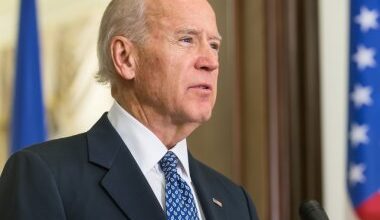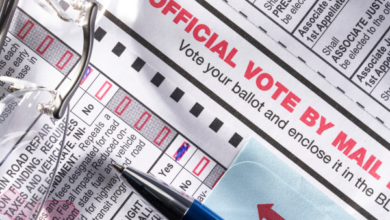The Role of Outside Groups in Funding Election Campaigns

Introduction
Election campaigns are essential for the democratic process as they provide an opportunity for candidates to share their vision and ideas with the public. However, running an election campaign is an expensive endeavor, and candidates often rely on financial support from outside groups. These groups may include political action committees (PACs), Super PACs, nonprofit organizations, and individuals.
The role of outside groups in funding election campaigns has become increasingly controversial in recent years. Some argue that these groups provide much-needed support for candidates who would not be able to compete otherwise. Others, however, are concerned that outside groups have too much influence on the political process and can use their financial power to sway elections in their favor.
By understanding the role of outside groups in funding election campaigns, we can better assess the health of our democracy and make informed decisions about the future of campaign finance laws.
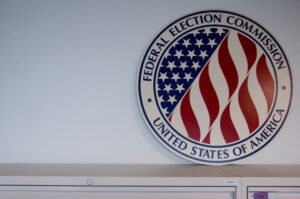
Types of Outside Groups
There are several types of outside groups that can contribute to election campaigns, each with its own set of rules and regulations. Some of the most common types include:
Political action committees (PACs)
Political action committees (PACs) are organizations that are formed specifically to raise and spend money on behalf of candidates or issues. Federal law requires PACs to register with the Federal Election Commission (FEC) and disclose their donors and expenditures.
However, PACs can be affiliated with a particular candidate or political party, or they can be independent and focused on a particular issue or cause.
Importantly, We can start by explaining the role of a PAC. A PAC is created for the purpose of raising and spending money to elect a specific candidate. Any donation given to a PAC becomes a form of direct campaign finance, which is illegal for an individual.
Moreover, A PAC can be either a “non-coordinating” or “coordinating” PAC. Non-coordinating PACs do not coordinate with the candidate or political party. They are formed to raise and spend money solely on behalf of candidates. Coordinating PACs, on the other hand, are formed to help both the candidate and the party.
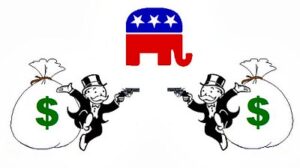
Super PACs
Super PACs are different than regular PACs because they are not restricted to making donations to candidates for office. Instead, they can spend money on advertisements that support or oppose specific candidates for public office. This is why you will often hear people call super PACs “dark money” since they don’t have to disclose their donors to the public.
However, some super PACs are required to publicly identify their donors, and some of them voluntarily disclose their donors. Super PAC spending is currently limited in the US, but this rule could change if it becomes popular with the public.
Further, Super PACs are considered to be a new way to influence elections. They allow people who are interested in electing certain individuals to run independent campaigns that do not need to report their donors and spend unlimited amounts of money on advertising.
In addition, Super PACs are allowed to collect contributions from corporations, labor unions, trade associations, and individuals. They can make unlimited contributions to candidates who have signed a pledge to support their policy goals, but they are not allowed to give money directly to the candidate.

527 organizations
527 organizations are not allowed to spend money to influence an election. Instead, these organizations are allowed to raise funds to register people to vote and to encourage them to participate in the political process. In order to do this, 527 organizations must register with the IRS.
In addition, The 527 organization can choose which candidates it will support. As you might expect, many of the 527 organizations are registered under the name of another organization that supports a candidate. These organizations were created in response to the Citizens United Supreme Court ruling.
Moreover, Prior to the ruling, all political contributions had to come from individuals, groups, and businesses. This meant that a company could not donate to a campaign unless it was registered with the Federal Election Commission.
Importantly, The 527 organizations are named after a section of the Internal Revenue Code that allows them to engage in political activities, such as voter registration and voter turnout efforts.
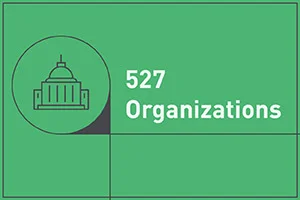
501(c)(4) organizations
501(c)(4) organizations do not have to disclose their donors. This means that no one knows who has donated money to this organization. They don’t have to tell who has donated money to them because they are tax exempt.
Moreover, When you donate to an organization like this, you will not be told who has donated to them. All the information will be kept secret. Some organizations are registered under the 501(c)(4) section of the IRS code.
Importantly, These organizations cannot participate in any political activity, and they cannot raise funds from the general public. Most of the time, 501(c)(4) organizations donate to political candidates who support their agenda.
However, these organizations may support other candidates as well. They can even spend money on advertisements or direct mail pieces that promote their agenda. However, the organization can only make contributions to federal candidates, and they are not allowed to spend money on state and local elections.

Laws Governing Outside Group Activities
All groups that engage in political activity must comply with federal election law. Federal election law applies to political committees, independent expenditure-only groups, party committees, and others that make “contributions” (defined in the statute) to federal candidates or political parties.
Further, At the federal level, the Federal Election Commission (FEC) has broad authority over the activities of outside groups. Under federal law, the FEC regulates the activities of political action committees (PACs), super PACs, and other organizations that engage in federal elections.
Moreover, The FEC has broad authority under the Federal Election Campaign Act (FECA) to regulate, among other things, the amount of money that outside groups may spend on electioneering communications (those communications that expressly advocate the election or defeat of a clearly identified candidate), as well as the types of communication that outside groups may use to influence the outcome of elections.
However, Federal law also limits the amount of money that individuals, corporations, and unions can contribute directly to candidates and political parties.

Impact of Outside Groups on Elections
The role of outside groups in election campaigns has expanded considerably since the 1960s. Campaign finance reform advocates argue that the influence of outside groups is not limited to the funding of elections, but also includes lobbying and other political activities.
Further, While the Supreme Court has ruled that these activities are protected under the First Amendment, some groups have found themselves facing legal challenges because of their involvement in election-related activities.
Moreover, Outside groups can have a significant impact on elections, both through the financial resources they provide to candidates and the messages they promote. The involvement of outside groups in funding election campaigns can raise concerns about the influence of special interests and wealthy donors on the electoral process.
Importantly, One of the main criticisms of outside group involvement in elections is that it can lead to an imbalance of power, with some candidates receiving significantly more financial support than others. This can make it difficult for candidates without access to significant financial resources to compete effectively, and may discourage some.

Conclusion
In conclusion, the role of outside groups in funding election campaigns is a complex and often controversial issue. These groups can provide financial resources and promote messages that can shape the direction of an election.
However, their involvement can also raise concerns about the influence of special interests and wealthy donors on the electoral process.
In addition, The laws governing outside group activities vary by jurisdiction and type of group, and it is important for voters to be aware of these laws and the potential impact of outside group involvement on elections.
Ultimately, the role of outside groups in funding election campaigns is an important aspect of the democratic process, and it is up to voters to make informed decisions about the candidates and issues that they support.
